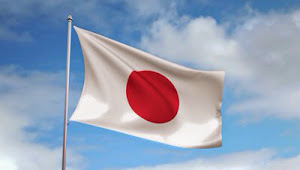The ongoing India-Japan negotiations on a civil nuclear agreement were the hallmark of Indian Premier Modi’s recent visit to Japan.
Modi could not achieve the breakthrough on the much sought after civil nuclear deal. There are issues in the prospective Japan-India Nuclear Cooperation Agreement that can have multiple, deplorable implications. India possesses nuclear weapons and has tested these several times. It is not a signatory of the Nuclear Nonproliferation Treaty (NPT). If nonproliferation norms and Japanese traditional championing of these were to be followed, Tokyo cannot enter into nuclear trade with New Delhi.
Nuclear technology is the key to Japan’s energy sector and affects its industrial output. Overblown safety fears after the Fukushima nuclear power plant accident in 2011 affected the public’s sentiment against nuclear energy but the economic realities have changed the government’s and public’s behaviour. Japan is one of the major traders of nuclear technology for peaceful purposes and a member of the Nuclear Suppliers Group (NSG) that was founded in 1975 after India tested a nuclear weapons device using fissile material diverted from fuel provided for nuclear power generation.
India claims to have a huge energy deficit and not having enough uranium to fuel its existing and upcoming nuclear power plants that will add millions of volts to its impoverished energy mix. New Delhi boasts a fat purse and exerts sufficient political influence to woo some nuclear supplier states in foregoing their domestic and international nonproliferation commitments to trade with India. That is why the US arm-twisted the members of the NSG in giving India an exceptional waiver to trade with that country. Japan was also part of that Faustian bargain but Tokyo could not be charmed into becoming the 12th capital with which India could trade in nuclear materials. Giving a NSG waiver was delinquency but nuclear trading or allowing New Delhi to become a member of the group would be a crime. That is perhaps why Japan has demurred from signing a nuclear deal with India.
For its own sake, Japan is gearing up to start a massive nuclear fuel reprocessing plant that can produce nine tonnes of weapons usable plutonium annually, enough for 2,000 atomic bombs!
For its own sake, Japan is gearing up to start a massive nuclear fuel reprocessing plant that can produce nine tonnes of weapons usable plutonium annually, enough for 2,000 atomic bombs! This is in spite of the fact that 150,000 of its people remain homeless and that the nuclear disaster has cost almost $ 100 billion. Japan is a rational state and has reverted to nuclear energy because it is considered a safe and inexhaustible source of energy and a panacea against its dependence on hydrocarbon imports from the Middle East and elsewhere. The South China Sea is gradually becoming a powder keg due to US and Chinese competition, forcing Japan to hedge its bets on safer energy production alternatives to fossil fuels.
Indian negotiations for a civil nuclear deal with Japan started in Tokyo in June 2010. Two consecutive rounds followed in October 2010 and November 2010 in New Delhi and Tokyo. However, India slowed the pace of negotiations in the wake of the Fukushima disaster in March 2011. The last round of talks was held in November 2013. Japanese companies such as specialist reactor vessel manufacturer JSW are keen on signing a nuclear deal but the government has insisted that India agree to more stringent inspections than those required under nuclear cooperation pacts with other countries. In the longer run, Japan will have to make a choice between its trade and geopolitical interests against non-proliferation commitments.
Another hold up in the nuclear deal has been India’s refusal to accept limited liability for commercial operators who supply equipment. The Indian Civil Liability for Nuclear Damage Act of 2010 is only acceptable to states where their governments provide a financial cushion to the nuclear industry in taking the huge liability enforced by India. The prospective Japan-India Nuclear Cooperation Agreement would be a de facto legitimisation of India’s nuclear weapons status. Every gram of nuclear fuel that India would import from Japan would allow its indigenous uranium to be used for nuclear weapons production. If Japan enters a deal with India it joins a dozen others in effectively participating in New Delhi’s burgeoning nuclear weapons production.
India has invested heavily in nuclear technology for prestige and power. In his recent book The Power of Promise: Examining Nuclear Energy in India, Ramana explains how India’s Department of Aatomic Energy first acquired its present political clout, and how the Atomic Energy Commission, which reports directly to the Prime Minister, achieved its immunity to public scrutiny despite repeated failures to meet India’s nuclear energy needs. This domestic dynamic complements Indian global power ambition and some states happily let this happen for their short-term economic and geopolitical interests. It is just a matter of time that Faust will do what he is best at: having bought souls, he will ultimately challenge his hosts.

